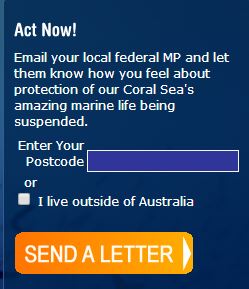 I read an article not too long ago that a friend passed along and felt compelled to share my thoughts about it. The article appeared in Forbes.com and was titled “Why Public Speakers Need To Copy James Bond.” That’s a compelling title for Bond fans and speakers alike – of which I’m both – so I got sucked in and read. The author’s piece was well written and compelling…unless you know something about the psychology of persuasion. The gist of the article was this – Bond movies open with compelling action-packed scenes, not the credits, to immediately hook moviegoers. Speakers should do the same by starting immediately with a compelling story. I wholeheartedly agree that a speaker starting with a good story hooks the audience but foregoing a brief introduction misses out on a golden opportunity to utilize the principle of authority which will make you more persuasive, according to the science of influence. Imagine going to a conference and getting ready to listen to a speaker you’ve never heard of before. Will you pay more or less attention if you quickly learn beforehand the speaker was the top salesperson in their organization, or had a doctorate, or was one of only a handful in the world who does what he/she does, or had some other fact that established him or her as an expert? I’m willing to bet you’ll be more interested to listen after learning something compelling about the speaker. Several years ago, Joshua Bell, one of the most accomplished violinists in the world, was playing a million dollar Stradivarius violin in a public subway. Despite the fact that people pay several hundred dollars to hear him in concert, hardly anyone paid attention that particular day in the subway. His beautiful music was the equivalent of a compelling story but it wasn’t enough to grab people’s attention. Do you think people would have stopped to listen if they knew he was one of the greatest violinists in the world and that he was playing a million dollar instrument? I’d bet you any amount of money that many, many more people would have paid attention to him and his music. James Bond enjoys a brand very few individuals can claim. Warren Buffett, Bill Clinton and a few others would need no introduction before giving a speech, but you and I do, so here are six tips for your intro when presenting to a group of any size: You write the introduction. Don’t leave this to chance because nobody knows you and your expertise like you do.Keep it short. An intro of 100-200 words is plenty because too long and it’s boring, but too short and you may omit something important.Make sure it’s audience-appropriate. There may be interesting things you’ve accomplished that have nothing to do with the talk so leave out those things.Include something personal. This allows audience members to connect with you on a personal level which invokes the principle of liking.Have a third party introduce you. You do this because someone else can say things about you that will sound like bragging if you say them.Make sure the introduction happens before the talk. Unlike the movies where the credits come later, you want people to feel compelled to listen before you even open your mouth.Talking about Bond as a model for speaking makes for a compelling headline but not everything he does will work for you and me. That’s the difference between movies and reality. So my advice is this; find out what the science says then diligently apply it and you’re sure to give a more persuasive presentation.
I read an article not too long ago that a friend passed along and felt compelled to share my thoughts about it. The article appeared in Forbes.com and was titled “Why Public Speakers Need To Copy James Bond.” That’s a compelling title for Bond fans and speakers alike – of which I’m both – so I got sucked in and read. The author’s piece was well written and compelling…unless you know something about the psychology of persuasion. The gist of the article was this – Bond movies open with compelling action-packed scenes, not the credits, to immediately hook moviegoers. Speakers should do the same by starting immediately with a compelling story. I wholeheartedly agree that a speaker starting with a good story hooks the audience but foregoing a brief introduction misses out on a golden opportunity to utilize the principle of authority which will make you more persuasive, according to the science of influence. Imagine going to a conference and getting ready to listen to a speaker you’ve never heard of before. Will you pay more or less attention if you quickly learn beforehand the speaker was the top salesperson in their organization, or had a doctorate, or was one of only a handful in the world who does what he/she does, or had some other fact that established him or her as an expert? I’m willing to bet you’ll be more interested to listen after learning something compelling about the speaker. Several years ago, Joshua Bell, one of the most accomplished violinists in the world, was playing a million dollar Stradivarius violin in a public subway. Despite the fact that people pay several hundred dollars to hear him in concert, hardly anyone paid attention that particular day in the subway. His beautiful music was the equivalent of a compelling story but it wasn’t enough to grab people’s attention. Do you think people would have stopped to listen if they knew he was one of the greatest violinists in the world and that he was playing a million dollar instrument? I’d bet you any amount of money that many, many more people would have paid attention to him and his music. James Bond enjoys a brand very few individuals can claim. Warren Buffett, Bill Clinton and a few others would need no introduction before giving a speech, but you and I do, so here are six tips for your intro when presenting to a group of any size: You write the introduction. Don’t leave this to chance because nobody knows you and your expertise like you do.Keep it short. An intro of 100-200 words is plenty because too long and it’s boring, but too short and you may omit something important.Make sure it’s audience-appropriate. There may be interesting things you’ve accomplished that have nothing to do with the talk so leave out those things.Include something personal. This allows audience members to connect with you on a personal level which invokes the principle of liking.Have a third party introduce you. You do this because someone else can say things about you that will sound like bragging if you say them.Make sure the introduction happens before the talk. Unlike the movies where the credits come later, you want people to feel compelled to listen before you even open your mouth.Talking about Bond as a model for speaking makes for a compelling headline but not everything he does will work for you and me. That’s the difference between movies and reality. So my advice is this; find out what the science says then diligently apply it and you’re sure to give a more persuasive presentation.Brian Ahearn, CMCT® Chief Influence Officer influencePEOPLE Helping You Learn to Hear “Yes”.As noted last week; Dr. Cialdini has a new book coming out that he’s coauthored with Steve Martin and Noah Goldstein, Ph.D. The book is called The Small Big and can be pre-ordered here.
Are You Human Spam
Are You Equivalent to Human Spam?
 We have all received spam in our inbox. The messages are usually irrelevant most likely unsolicited, and generally for the purposes of advertising, phishing, or spreading malware. Our reaction to spam is commonly not positive. The main reason is because spam commands our attention with no return on the investment. The message demands we do something, generally a preventative act to ensure we don’t get bothered again, i.e. we need move the message to the junk folder, flag it as spam or delete it. This all takes time and it detracts from our day not adds value to it.
We have all received spam in our inbox. The messages are usually irrelevant most likely unsolicited, and generally for the purposes of advertising, phishing, or spreading malware. Our reaction to spam is commonly not positive. The main reason is because spam commands our attention with no return on the investment. The message demands we do something, generally a preventative act to ensure we don’t get bothered again, i.e. we need move the message to the junk folder, flag it as spam or delete it. This all takes time and it detracts from our day not adds value to it.
The question for you this week is,
‘Are your persuasive appeals becoming akin to Human Spam’?
When you send an email, make a call or speak up in a meeting do people zone out? Do they become disinterested? The reason this is important is because you do not want to be seen as Human Spam. While it is obvious, for our purposes Human Spam is someone who makes irrelevant requests or takes up the time of others with no net return on the invested time.
We can generally group this into the following categories:
Not the Decision Maker: This can happen when you target the wrong person with your request. If the Decision Maker has a high level of power but no interest in what you proposing you are consuming their time. You become an unsolicited distraction and one they would prefer to avoid in the future because they label you Human Spam.
Not prepared: Perhaps worse that targeting the wrong person is getting time with the right person and wasting it. Being unprepared, winging it, and generally presenting a poorly formed message will see you being labelled as Human Spam. You command attention but for no real return on effort. This can see the Decision Maker become annoyed and perhaps even resentful because of your approach.
Not focused: Being focused is critical when conveying a message. It needs to be clear and concise with an obvious call to action at the end. If your messages are confusing, longwinded and generally confusing – yep you guessed it – Human Spam.
Not adding value: If you are not adding value, but are simply regurgitating the same old information, spinning it in the same old way, or perhaps using a new spin but on the same old information; you are not adding value for the persuadee and hence become labelled as Human Spam.
Malingerer: The person who seemingly has nothing better to do but take up the time of others. They are a social parasite, not unlike a leech, gorging themselves on the time and energy of their victim, for their own benefit and self-gratification.
All of the above lead to disinterest and in persuasion, disinterest is death. If your persuadee is disinterested they will not be open to your ideas, they will not be interested in taking on the hard yards and putting in the effort required to get behind you and your request. Instead they will see you as taking up valuable space in their day and label you and/or your idea as Spam.
The problem is, once labelled as Spam, it is a very tough road back. Many Decision Makers are time poor and they do not appreciate people taking it unnecessarily. Therefore if you are a Human Spammer they will avoid you in meetings, conversations and perhaps more generally in everyday interactions.
Implication for you
Before sending that email or making that phone call, before putting your hand up in a meeting or adding your opinion, ask yourself
“Is what I am about to say going to add value?”
If you feel that what you about to say will perhaps take up the other person’s time with no net benefit to them or your relationship with them – don’t say it!
I first heard of Human Spam from branding specialist Sally Hogshead and she said
“Every time you communicate, you are either adding value, or taking up space”
I loved it.
What do you want be known for? Do you want to be the person who adds value or the one who takes up time unnecessarily?
Ultimately your intention is not the test here. The perception of the persuadee is what matters. If they see you or what you say as not adding value, you are just taking up space.
Self-edit.
Stop talking.
Do more research.
Come back when you can inform, inspire and help them to improve their situation.
Attention is a finite resource. Don’t ask for it unless you can do something with it!
The post Are You Human Spam appeared first on Social Influence Consulting Group.
Contrast – Protect Our Coral Sea
In previous posts I have highlighted the sophisticated use of persuasion in advertising – sophisticated because it seems so simple. In a current television ad being run by Protect Our Coral Sea they use a giant humphead wrasse named Barry as their spokes-fish.
Watch the advertisement and look for the use of Contrast and Liking.
The reference to the Amazon and the Serengeti take world-renowned environmental flagships and connects them to “our” Coral Sea thereby answering the Contrast Phenomenon question “Compared to what?”
Barry says that as Australian’s only we can protect it (nice bit of Liking). There is a drop in by another fish saying ‘hello Barry‘ – pointing toward Consensus, more than just Barry and I involved; before delivering the call to action of contacting the Prime Minister.
When you go the website you have the video, a list of other reef supports (Consensus), keep scrolling down and you find all of the major world environmental foundations and societies (Authority) and on the right there is a sign-up box asking you to act now:

This then takes you to a page that asks you send a letter to your local member. Based on the Commitment you have made to click on the ‘Send Letter’ button on the first page – you are most likely to send the email – nailing Consistency.
They have even gone to the effort of typing out an example letter for you to send to your local member – what a gift (Reciprocity).
In the body of the example email they highlight all that will be lost if the Federal Government suspends protection of the Coral Sea (the loss of many marine hotspots, endangered species, marine businesses, the overall health of our oceans, and Australia’s reputation as a world leader in marine conservation). And there my friend is Scarcity!
In a 27 second advertisement and two webpages Protect Our Coral Sea have nailed all of Cialdini’s principles in record time.
Not that it matters, but I sent the letter to my local member. Great campaign!
Let me know what you think.
The post Contrast – Protect Our Coral Sea appeared first on Social Influence Consulting Group.
- « Previous Page
- 1
- …
- 30
- 31
- 32
- 33
- 34
- …
- 64
- Next Page »